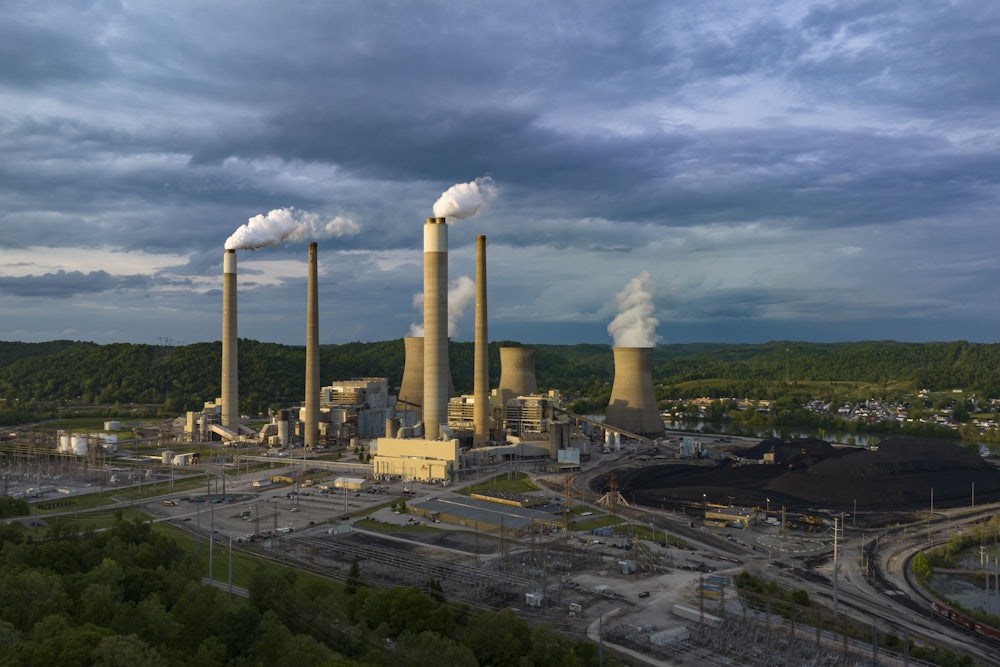Sometimes a coincidence of timing is everything. The Environmental Protection Agency has reportedly drawn up plans to scrap a two-decade-old finding that underpins the government’s ability to regulate planet-heating greenhouse gas emissions. The plan, first reported on by The Washington Post, will also dismantle any remaining limits on greenhouse gas emissions from motor vehicles. Although it’s likely get hung up in court, the Trump administration’s attempt to demolish this foundational policy shows just how committed the White House is to trashing any and every climate protection. Hours after the news first broke, the International Court of Justice in the Hague—the world’s highest court—ruled that governments can be held legally responsible for climate inaction. Theoretically, that is, the United States could now be held liable for dismantling greenhouse gas regulations—and made to pay up.
“The failure of a state to take appropriate action to protect the climate system” from greenhouse gas emissions, wrote Yuji Iwasawa, the president of the ICJ, “may constitute an internationally wrongful act which is attributable to that state.” While the unanimous, first-of-its-kind ruling is not legally binding, it lays the groundwork for countries to sue one another for failing to reduce emissions and regulate polluters, and establishes a “clean, healthy and sustainable environment” as a human right. Legal consequences for violating that right, the court wrote, could include “full reparation to injured states.”
Unfortunately, there’s ample reason to be skeptical about the power of ICJ rulings. Last year, another unprecedented advisory ruling from the court found that Israel’s occupation of the West Bank and East Jerusalem, and its expanding settlements there, violate international law. Earlier in 2024, the ICJ ordered Israel to restrain its assault on Gaza, and, in a separate case brought by South Africa, found that Palestinians have “plausible rights to protection from genocide.” Then–Secretary of State Antony Blinken—who frequently touted his department’s commitment to defending the so-called “rules-based international order”—rebuked that ruling, calling South Africa’s case “meritless.” Israel’s U.S.-funded destruction of Gaza and expansion of Israeli settlements into the occupied West Bank and East Jerusalem have continued ever since, and the U.S. has continued to defend those actions.
Whether on Palestine or climate, the U.S. is consistently happy to flout international law to further its own interests and those of its allies. Like its proposal to annex Gaza, the Trump administration’s war on climate policy is obviously heinous. On the latter front, at least, the Biden administration should get some credit for attempting to strengthen greenhouse gas regulations Republicans have now put on the chopping block. But it would be a mistake to pretend that the U.S. is indifferent to suffering—and willing to exacerbate it—only when Republicans are in charge.
For nearly as long as the United Nations has been discussing climate change, the U.S. has shot down legally binding agreements to act on it. The Paris Agreement itself was built to accommodate U.S. complaints over the Kyoto Protocol, a treaty signed by the Clinton administration in 1997 that was then unanimously denounced by the U.S. Senate. There are countless examples of America’s undermining of global efforts to acknowledge the rich world’s outsize responsibility for the climate crisis. Democrats create elaborate legal justifications for why they shouldn’t be made to phase out fossil fuels or help poorer countries adapt to and cope with the climate crisis. Republicans generally outright deny that that crisis is happening, and refuse to engage with multilateral processes to deal with it. The Democratic position on the matter might best be summed up by an offhanded comment Obama-era climate envoy Todd Stern reportedly made at climate talks in South Africa in 2012: “If equity’s in, we’re out.” The Republican position is a bit clearer: We’re out either way.
Consider the testimony of the United States in the ICJ case, submitted in 2024 by then–State Department legal adviser Richard Visek. After several pages touting America’s supposedly sterling record of fighting climate change, commitment to international law, and progress in corralling other countries to stem their emissions, the U.S. announced its opposition to the stance the court eventually adopted. “A recognition that anthropogenic climate change can adversely affect the enjoyment of human rights,” Visek wrote, “does not mean that States have international human rights obligations to mitigate” greenhouse gas emissions. In perfect legalese, Visek added that, while the U.S. “looks forward to working with other States to exchange views toward the development of a right to a clean, healthy, and sustainable environment … any such right remains a matter of lex ferenda [future law] rather than lex lata [current law].”
News of the ICJ ruling may or may not have crossed the desk of Lee Zeldin, the head of the EPA. His—and MAGA’s—take on climate is rather blunter than Visek’s, but the positions are not misaligned. “The Trump Administration will not sacrifice national prosperity, energy security, and the freedom of our people for an agenda that throttles our industries, our mobility, and our consumer choice while benefiting adversaries overseas,” Zeldin said when announcing his plans for the greenhouse gas finding back in March. The “endangerment finding” in his crosshairs—which, in 2009, found that greenhouse gases are harmful pollutants—has been a longtime target for MAGA world and its donors. The proposal to overturn that finding hasn’t been made public, and is almost certain to face court challenges. But the administration’s specific argument in this case rests on the idea that excess greenhouse gas emissions are not harmful because rising temperatures present no danger to public health and welfare.
Much of the outrage among climate advocates has historically centered on many Republicans’ refusal to recognize the reality that climate-fueled disasters are killing people in the U.S. and abroad. Ultimately, though, whether Zeldin and the rest of the Trump administration actually believe in the harms posed by greenhouse gases matters a lot less than the White House’s very real plans to make them worse. And at the end of the day, belief isn’t worth much in the other direction, either. When it comes to international affairs, especially, Democrats have asked the public to take their beliefs—in the rules-based international order, human rights, and climate action—at face value, even as they work to undermine all of the above when it suits their own interests and those of their allies.
The trouble with so much climate discourse orbiting around questions of belief and denial is that it can leave actions out of the equation. Whether it makes its case in high-minded legalese or MAGA bluster, a country that stands by while Israeli soldiers bomb hospitals and gun down civilians waiting in bread lines—and furnishes them with ammunition for both—is a country that will keep expanding fossil fuels as millions at home and abroad are displaced and killed by climate-fueled disasters. Whatever the people in charge believe while that happens is irrelevant. With any hope, the ICJ ruling can open the door to holding Zeldin, the Trump administration, and whoever takes their place accountable for what they’ve done.










